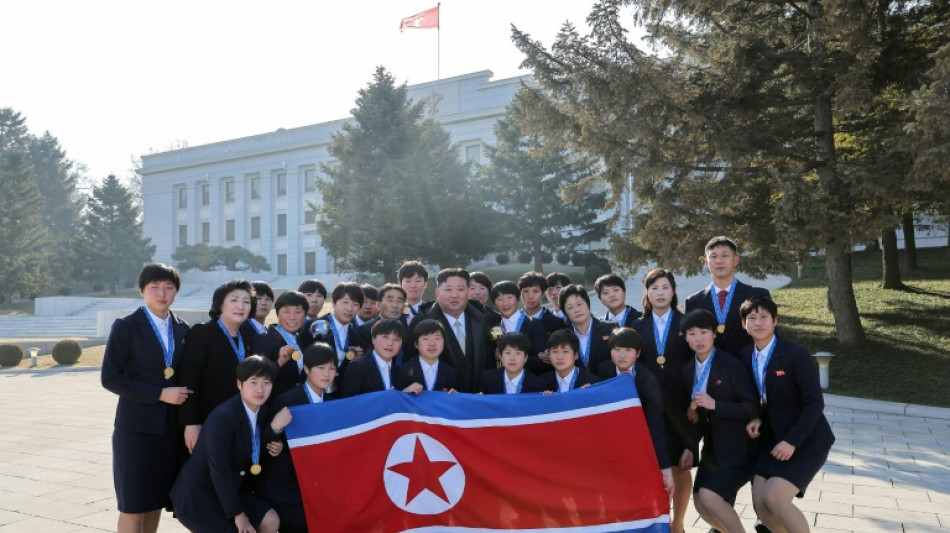
-
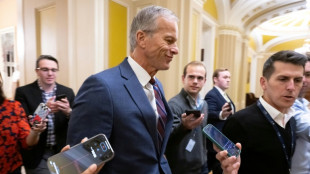 End to US government shutdown in sight as stopgap bill advances to House
End to US government shutdown in sight as stopgap bill advances to House
-
'Western tech dominance fading' at Lisbon's Web Summit

-
 Asian stocks rise as record US shutdown nears end
Asian stocks rise as record US shutdown nears end
-
'Joy to beloved motherland': N.Korea football glory fuels propaganda
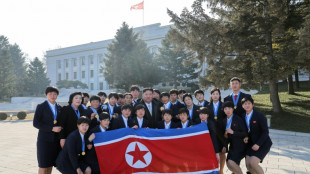
-
 Taiwan coastguard faces China's might near frontline islands
Taiwan coastguard faces China's might near frontline islands
-
Concentration of corporate power a 'huge' concern: UN rights chief
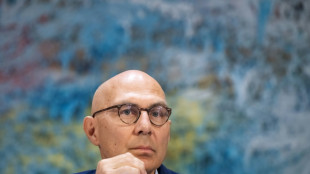
-
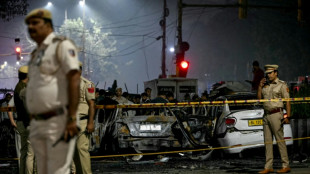 Indian forensic teams scour deadly Delhi car explosion
Indian forensic teams scour deadly Delhi car explosion
-
Trump says firebrand ally Greene has 'lost her way' after criticism
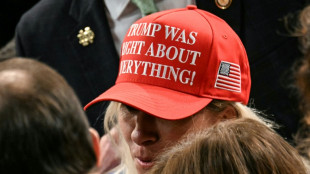
-
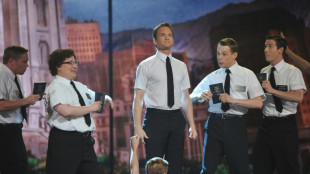 Show shines light on Mormons' unique place in US culture
Show shines light on Mormons' unique place in US culture
-
Ukraine, China's critical mineral dominance, on agenda as G7 meets
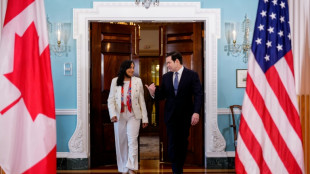
-
 AI agents open door to new hacking threats
AI agents open door to new hacking threats
-
Syria joins alliance against Islamic State after White House talks
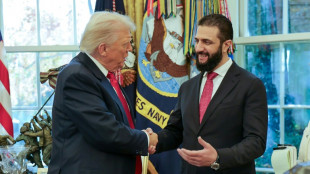
-
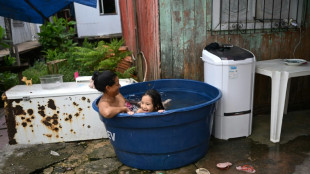 As COP30 opens, urban Amazon residents swelter
As COP30 opens, urban Amazon residents swelter
-
NHL unveils new Zurich office as part of global push
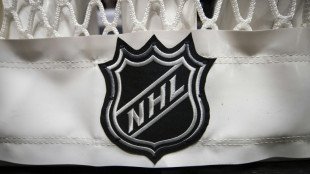
-
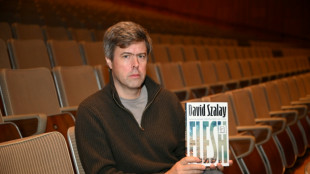 Szalay wins Booker Prize for tortured tale of masculinity
Szalay wins Booker Prize for tortured tale of masculinity
-
'Netflix House' marks streaming giant's first theme park
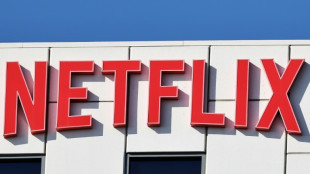
-
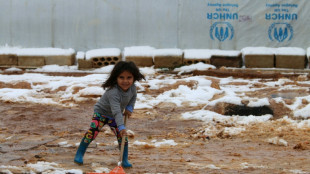 UN warns of rough winter ahead for refugees
UN warns of rough winter ahead for refugees
-
Brazil's 'action agenda' at COP30 takes shape
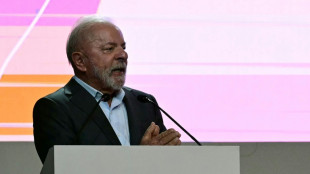
-
 Trump threatens $1 billion action as BBC apologises for edit error
Trump threatens $1 billion action as BBC apologises for edit error
-
Sinner dominates injury-hit Auger-Aliassime in ATP Finals opener
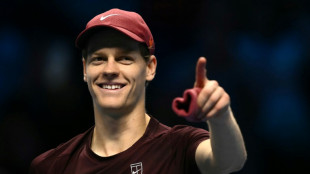
-
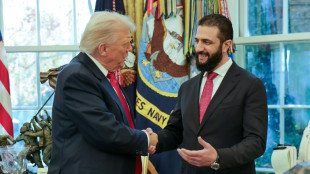 Trump hails Syria's 'tough' ex-jihadist president after historic talks
Trump hails Syria's 'tough' ex-jihadist president after historic talks
-
Syria's ex-jihadist president meets Trump for historic talks
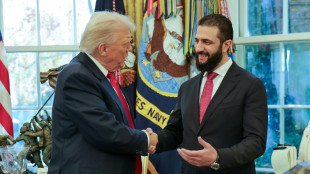
-
 Top US court hears case of Rastafarian whose hair was cut in prison
Top US court hears case of Rastafarian whose hair was cut in prison
-
US mediator Kushner and Netanyahu discuss phase two of Gaza truce
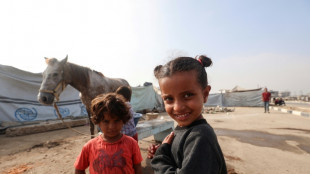
-
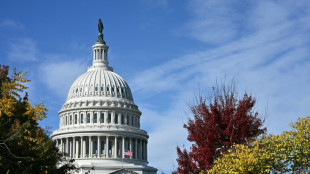 End to US government shutdown in sight as Democrats quarrel
End to US government shutdown in sight as Democrats quarrel
-
Trump threatens air traffic controllers over shutdown absences

-
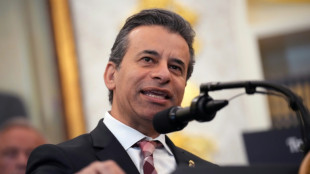 US to remove warnings from menopause hormone therapy
US to remove warnings from menopause hormone therapy
-
UK water firm says 'highly likely' behind plastic pellet pollution incident
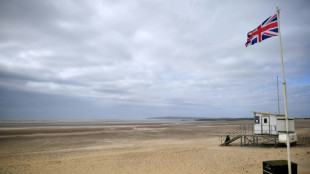
-
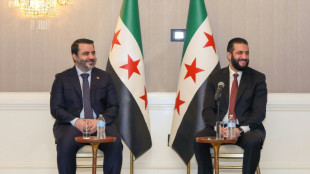 Syria's ex-jihadist president holds historic Trump talks
Syria's ex-jihadist president holds historic Trump talks
-
End to record-long US government shutdown in sight
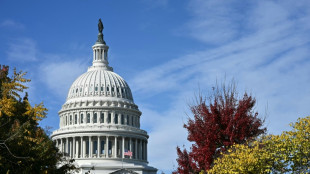
-
 France's ex-leader Sarkozy says after jail release 'truth will prevail'
France's ex-leader Sarkozy says after jail release 'truth will prevail'
-
Atalanta sack coach Juric after poor start to season
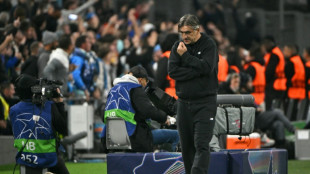
-
 Trump threatens $1 billion action as BBC apologises for speech edit
Trump threatens $1 billion action as BBC apologises for speech edit
-
Gattuso wants 'maximum commitment' as Italy's World Cup bid on the line
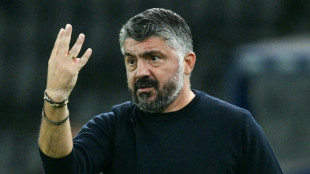
-
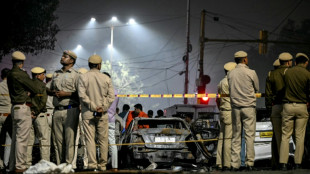 Indian capital car blast kills at least eight
Indian capital car blast kills at least eight
-
Deadly measles surge sees Canada lose eradicated status
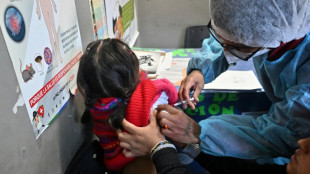
-
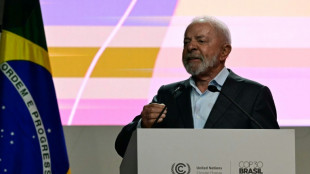 Brazil's Lula urges 'defeat' of climate deniers as COP30 opens
Brazil's Lula urges 'defeat' of climate deniers as COP30 opens
-
Strangled by jihadist blockade, Malians flee their desert town
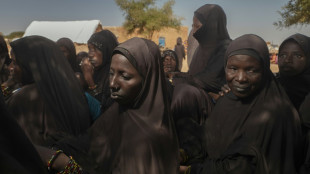
-
 US Supreme Court declines to hear case challenging same-sex marriage
US Supreme Court declines to hear case challenging same-sex marriage
-
'Fired-up' Fritz sees off Musetti in ATP Finals
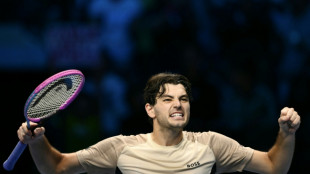
-
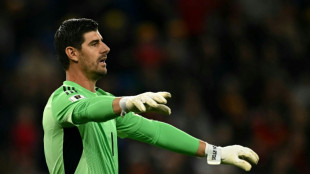 Injured Courtois set to miss Belgium World Cup qualifiers
Injured Courtois set to miss Belgium World Cup qualifiers
-
Bulatov, pillar of Russian contemporary art scene, dies at 92
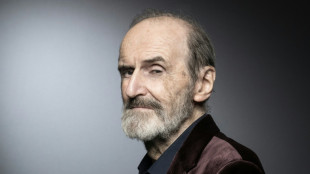
-
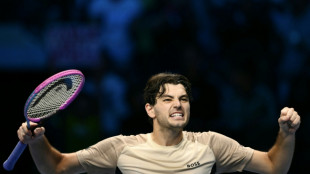 Fritz sees off Musetti in ATP Finals
Fritz sees off Musetti in ATP Finals
-
US strikes on alleged drug boats kill six more people

-
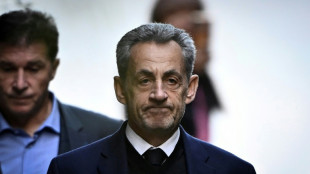 Sarkozy released from jail 'nightmare' pending appeal trial
Sarkozy released from jail 'nightmare' pending appeal trial
-
COP30 has a mascot: the fiery-haired guardian of Brazil's forest
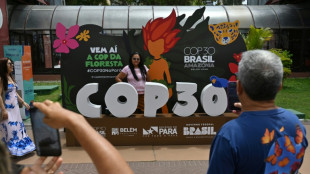
-
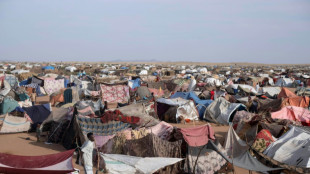 The Sudanese who told the world what happened in El-Fasher
The Sudanese who told the world what happened in El-Fasher
-
Three things we learned from the Sao Paulo Grand Prix
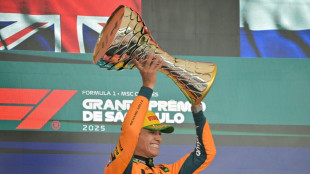
-
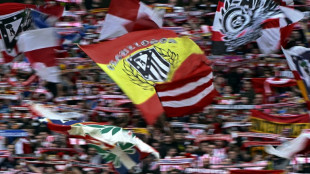 ASC acquire majority share in Atletico Madrid
ASC acquire majority share in Atletico Madrid
-
Ferrari boss tells Hamilton, Leclerc to drive, not talk
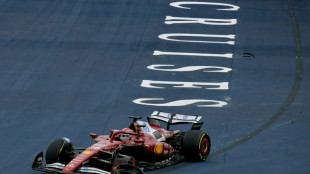

'Joy to beloved motherland': N.Korea football glory fuels propaganda
North Korea is basking in its dominance of women's youth football after a third World Cup win in just over a year, sporting success that is being used to justify the secretive state's political system.
A 3-0 win against the Netherlands in Morocco on Saturday saw the North Koreans lift a second successive Women's U-17 World Cup, and fourth in all, following their victory 12 months ago.
The back-to-back U-17 triumphs came after North Korea, which is largely closed off to the outside world, also won the Women's World Cup at under-20 level in September 2024.
The North Koreans swept all before them in Morocco, scoring a tournament record 25 goals and conceding just three as they won all seven of their matches.
The triumph saw North Korea's propaganda machine swing into action on Monday with the team's exploits seized upon by state media as bringing "joy to our beloved motherland".
The Rodong Sinmun newspaper blazed a state news agency KCNA piece across its front page trumpeting: "Our players ran across the pitch waving the dignified flag of our republic with pride."
Nuclear-armed but impoverished, North Korea is more often in the news for sanctions-busting ballistic missile launches, but sees investment in sporting success as a way to vindicate its political system.
- 'Inspiration to the people' -
The victory served as "great encouragement and inspiration to all the people ... to host the 9th Party Congress as a victorious and glorious event," said state mouthpiece KCNA.
It was referring to the once-every-five-years gathering of the country's highest decision-making body presided over by leader Kim Jong Un.
A year ago, officials staged a street parade upon the players' return from the U-17 World Cup.
Hong Min, analyst at Seoul's Korea Institute for National Unification, told AFP he expected a repeat of those celebrations in Pyongyang in the next few days.
"There is a strong perception that the country is culturally backward and isolated," he said.
"So they will want to use this to project an image that their social and cultural foundations are strong and vibrant."
Hong said children with athletic potential were selected early for training.
"The North finds elite athletes at a very young age and pours in deep investment at a state level with an aim to stage them in global competition," Hong said.
"Players in return feel they must repay such investment with their performances."
He said such an approach was "commonly seen in socialist countries" where the state takes a central role developing elite athletes.
The strength in women's football is a contrast to the North Korea's men, who are ranked 120th by FIFA and have not qualified for a World Cup since 2010.
The senior North Korea women's team are ranked 10th and will be one of the favourites for next year's Women's Asian Cup in Australia.
Of the 12 teams that have qualified, only Japan (eighth) have a higher world ranking.
- Stricter approach -
Lee Jung-woo, a senior lecturer in sports and leisure policy at the University of Edinburgh, said North Korea takes a stricter approach to youth sport than countries in the West.
"In youth football, I think European sport organisations highlight more on having fun," he said in an interview with German outlet DW.
But in North Korea, young players "join very highly disciplined, highly systematic and highly professionalised training regimes, so in early ages they can excel".
The Netherlands U-17 coach Olivier Amelink conceded that the North Koreans had been in a class of their own in skill, fitness and intensity.
"I don't think we could have beaten them. I think the gap ... is simply too big to compete with them at the moment," he told FIFA.com. after the final.
"They outplayed us throughout the entire match."
North Korea's Yu Jong Hyang was the player of the tournament, netting a joint-record eight goals in the finals to take home both the Golden Boot award for top scorer and Golden Ball for player of the tournament.
"Our players played the final match wonderfully," said midfielder Ri Ui Gyong, who scored the third goal in the final.
"All 25 goals were incredible, and we scored them because our players believed in each other and gave it their all."
C.AbuSway--SF-PST
